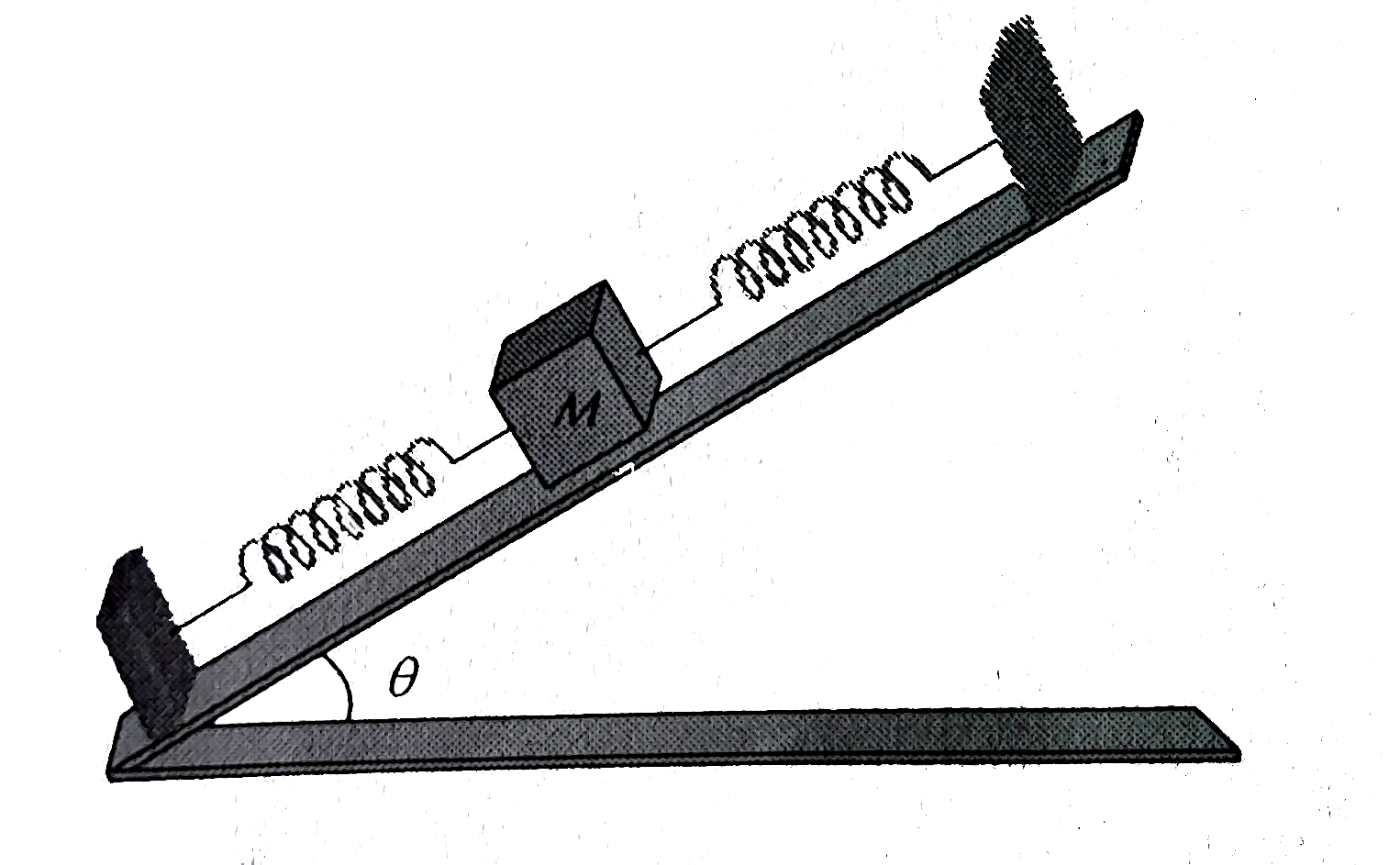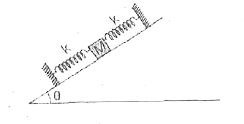A particle at the end of a spring executes SHM with a period While the corresponding period for another spring is If the period of oscillation with the two springs in series is T, then :
The correct Answer is:B
&
But
Topper's Solved these Questions
- SIMPLE HARMONIC MOTIONBOOK - ALLENCHAPTER - SIMPLE HARMONIC MOTIONEXERCISE - Exercise-05 [B]
12 Videos
- SIMPLE HARMONIC MOTIONBOOK - ALLENCHAPTER - SIMPLE HARMONIC MOTIONEXERCISE - MCQ s one or more than one correct answers
5 Videos
- SIMPLE HARMONIC MOTIONBOOK - ALLENCHAPTER - SIMPLE HARMONIC MOTIONEXERCISE - Exercise-04 [B]
105 Videos
- RACEBOOK - ALLENCHAPTER - RACEEXERCISE - Basic Maths (Wave Motion & Dopplers Effect) (Stationary waves & doppler effect, beats)
24 Videos
- TEST PAPERBOOK - ALLENCHAPTER - TEST PAPEREXERCISE - PHYSICS
4 Videos
Similar Questions
A body at the end of a spring executes SHM with a period t1, while the corresponding period for another spring is t2, If the period of oscillation with the two spring in series is T, then
View SolutionA body at the end of a spring executes SHM with a period t1, while the corresponding period for another spring is t2, If the period of oscillation with the two spring in series is T, then
View Solution
Knowledge Check
On a smooth inclined plane, a body of mass M is attached between two springs. The other ends of the springs are fixed to firm supports. If each spring has force constant K , the period of oscillation of the body (assuming the springs as massless) is
 A1. 2π√M2kB2. 2π√2MkC3. 2π√Mgsinθ2kD4. 2π√2Mgk
A1. 2π√M2kB2. 2π√2MkC3. 2π√Mgsinθ2kD4. 2π√2MgkA particle executing SHM with time period T and amplitude A. The mean velocity of the particle averaged over quarter oscillation, is
AA4TB2ATC3ATD4AT
A mass is suspended at the end of a spring and performs SHM with a time period 3 seconds, while the time period f same mass wih other spring is 4 second. If that mass is connected with the combination of the two springs connected in series then time period of oscillator is
View SolutionThe time period of oscillations of a block attached to a spring is t1. When the spring is replaced by another spring, the time period of the block is t2. If both the springs are connected in series and the block is made to oscillate using the combination, then the time period of the block is
View SolutionTime period of a given spring-mass system is

View SolutionWhen a boy is playing on a swing in the sitting position , the time period of oscillations of the swing is T. If the boy stands up , the time period of oscillation of the spring will be
View SolutionIn the adjacent figure, if the incline plane is smooth and the springs are identical then the period of oscillation of this body is

View SolutionIf the period of oscillation of mass M suspended from a spring is one second, then the period of 9M will be
View Solution
